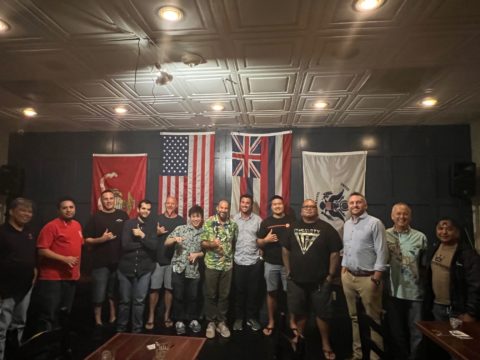

High school graduation is an exciting time full of celebrations and ceremonies. As a parent, it’s a moment of pride as you watch your child prepare for his or her upcoming college journey.
While the transition to college is exciting, it can also be very expensive. If you’re divorced, you might be grappling with which and/or how much each parent will contribute to your child’s higher education.
In most cases, Hawaii law requires both parents to provide financial support for their children (including for education) until they become an adult. After the child graduates from high school and turns 18, the court may also obligate parents to continue to pay child support until they graduate from college or turn 23, as long as they are enrolled full-time in an accredited college, university, or vocational program.
If you were divorced when your child was very young, either or both of your financial situations may have changed drastically necessitating a review of how much each parent should contribute. If you need to file a legal motion to change a previous decision or establish a post-high school educational cost arrangement, be sure to do so when your child is a junior, if not sooner. Waiting longer puts you at risk of not having enough time for a court to decide before graduation.
Here are some additional considerations when it comes to higher education costs for the children of divorced parents:
- Be sure to define “higher education costs.” For example, your former spouse may believe these costs should include tuition only but there are other costs to consider, including books, room, and board, and even travel to Hawaii and back from the mainland if they attend school out-of-state.
- How much does each parent earn? If one parent makes significantly more than the other, a judge may decide that each parent should pay a percentage of the child’s higher education expenses based on their income.
- If you don’t know what college your child will be attending, consider adding a legal provision that you and your former spouse together will contribute at least as much as Hawaii state tuition.
Giving yourself ample time to address these issues will ensure a smoother college transition for the recent high school graduate and you!
Seth Harris, a senior associate at the PMK family law division, is available to assist you with higher education financing concerns or any other family law needs. Contact him at [email protected].


PMK partnered with HUGS to sponsor a Dad’s Night Out on May 12th. HUGS is an organization that helps strengthen Hawaii’s families and improve their quality of life as they face the emotional and financial hardships of caring for a seriously ill child.
The dads enjoyed a night of good food, comradery and comedic relief at Square Barrels. HUGS Dad, Patrick Tyrrell and other comedians entertained the guests and made this Dad’s Night truly fun.
To learn more about HUGS, visit https://www.hugshawaii.org/


Porter McGuire Kiakona, LLP is pleased to announce that Tiffany Aukai and Jose Vega have joined the firm as associate attorneys.
Tiffany Aukai earned her J.D. from the William S. Richardson School of Law at the University of Hawaii at Manoa. While there, she worked as a constitutional law research assistant for Dean Aviam Soifer. Aukai also served as the Executive Secretary to the Senate of the Student Bar Association. Before joining PMK, she worked as a Deputy Prosecuting Attorney in the City and County of Honolulu and clerked for the Honorable Judge Matthew J. Viola of the First Circuit Court of Hawaii. In addition, Aukai has volunteered at the Legal Aid Society of Hawaii and the Hawaii Immigrant Justice Center and is a member of the Hawaii State Bar Association. As an attorney with PMK, Aukai will be working with clients on Oahu and the neighbor islands.
Jose Vega earned his J.D. from the William S. Richardson School of Law at the University of Hawaii at Manoa. While in law school he served with the Hawaiian Innocence Project and the Immigration Clinic, both of which are nonprofit organizations that help promote justice for minority groups. Before joining PMK, he worked in the areas of insurance defense and criminal defense law. He is a member of the Hawaii State Bar Association and as an attorney with PMK, will be working with clients on Oahu and the neighbor islands.


Partner R. Laree McGuire was a featured panelist at the April 30th Hawaii Council of Community Associations (HCCA) Board of Director Training Webinar. McGuire spoke on condominium governance, Association and Board Meetings, voting, proxies, meeting minutes, fair housing laws regarding pets, and new laws from the 2022 Legislative Session.


Weddings are a huge undertaking. They can take months of planning, discussions, and negotiations between you, your future spouse, and your families. But when the big day comes, hopefully, the hard work will pay off and you’ll remember and cherish that day for the rest of your life.
But don’t get lost in the weeds. What’s most important is not the wedding, but the marriage. The marriage is meant to last a lifetime, not just one day. And to ensure a resilient union, it is important to discuss some important topics before the wedding, so you and your spouse thoroughly understand each other’s expectations.
PMK associate and family law attorney Seth Harris provided some advice on what to talk about before you enter matrimony.
- The wedding – A wedding can be a major negotiation between two sometimes very different families. In a sense, it’s your first test as a couple for how you handle conflict and compromise. If you can’t agree on the wedding plans – such as how many people to invite and how much to spend – you may want to reevaluate.
- Location – Do you plan on staying in Hawaii for the rest of your life? If all your immediate family, aunties, uncles, and best friends live in Hawaii, you may have already decided you’ll never leave. But what if you or your spouse gets a great job offer on the mainland? Make sure you and your spouse discuss under what circumstances either of you will relocate.
- Finances – Who manages the money? This discussion should encompass everything from day-to-day bills to which of you will prepare and file the taxes. What are your financial priorities? For example, do you both want to buy a house? Do you anticipate paying for any additional education for you and/or your spouse? How much are you willing to spend on vacations? What level of financial risk is each of you comfortable with?
- Extended family – How much time will you spend with your extended family? Which relatives will be significant parts of your lives and those of your children if you plan to have them? Are you socially obligated to travel to see some family members? Does one of you envision having dinner every Sunday with one side of the family while the other wants a quiet meal at home with just you and your spouse?
- Children – You and your future spouse may not yet have determined how many children you want to have, but you should at least agree on if you do or don’t plan to have them.
- Religion – How significant a part of your lives do you want religion to be? If you are your spouse was raised in different faiths, have you agreed on a religion for your children?
Most importantly, keep an open dialogue with your future spouse. You won’t be able to anticipate every possible situation, which is why it is so crucial that you keep the lines of communication open, both before and after marriage!
Family law attorney and PMK associate Seth Harris provides knowledgeable, compassionate counsel for all of your family law needs. Contact him at [email protected].

